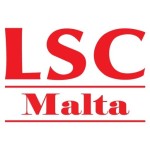Module aim
A learning experience and set of learning requirements and congruent tasks through which the learning delivered within the MBA programme as a whole, can be explored, discussed, coherently organised, rigorously analysed and evaluated, and critically reflected upon by the learner within a significant body of completed written work which is brought together using appropriate evidence and references, and is in the prescribed format of a Dissertation on an agreed topic, subject, theme, or field of enquiry. The self-critical and individual requirement by the learner to identify, design, research, critically reflect upon, and bring to completion, a significant body of individual enquiry in the form of a Dissertation while using appropriate methodology, theoretical concepts; the effective presentation of informed discussion and argument; the synthesis of ideas, theories and practices; and forming conclusions from the evidence and outcomes of the completed body of work and enquiry. The learning experience and the challenges for the learner which are associated with, and which are required to sustain the rigorous investigation of specific research questions which may involve the consideration of a variety of sources of evidence and research approaches and the completion of a sustained and significant piece of coherent argument, focussed discussion, and synthesis of theory, ideas, and/or experience or practices. (e.g. desk research, field research, theoretical and practical-experiential research).





